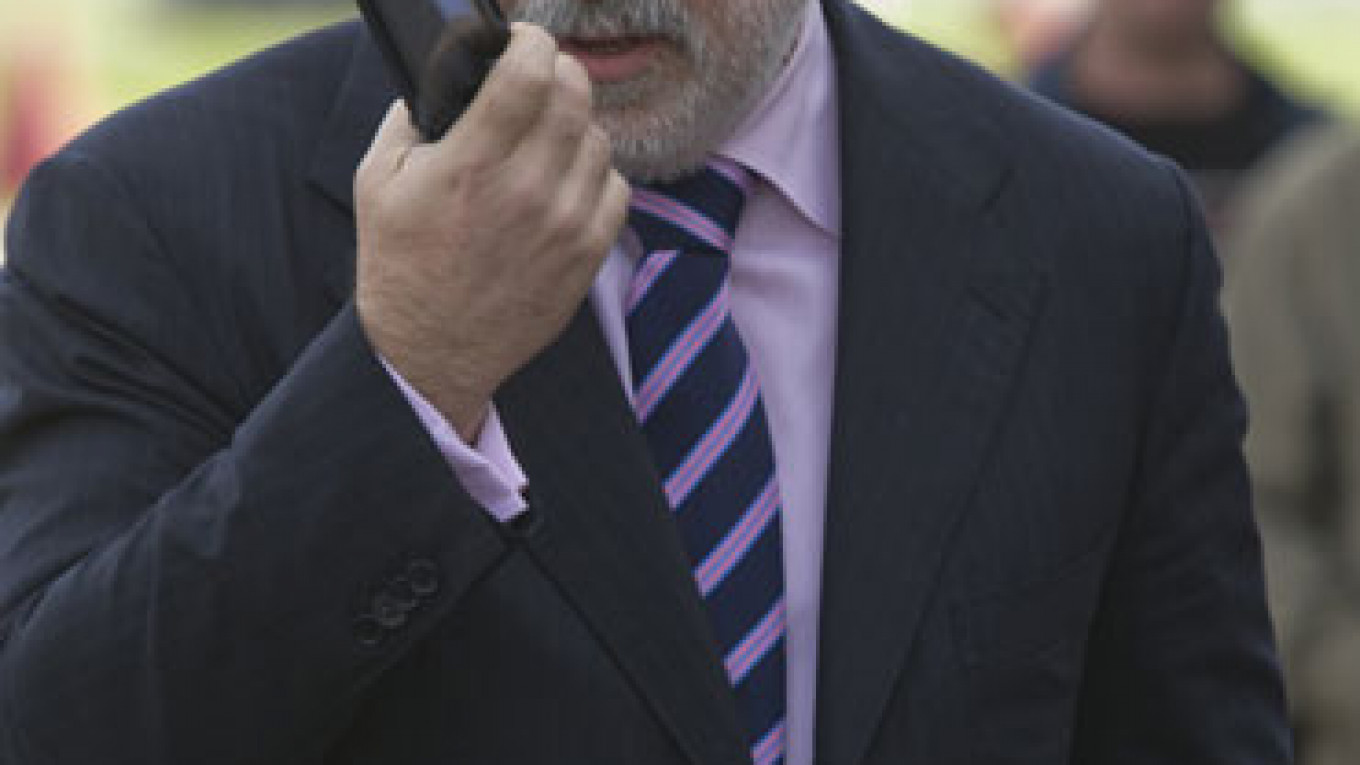The State Duma passed an amended bill on the Skolkovo innovation hub in the key second reading Friday, adding perks for participants, but legal experts and potential investors said further work was needed to ensure the project's success.
Lawmakers amended the Kremlin-backed bill to clarify customs rules, allow companies to establish a physical presence in Russia as late as 2014, and ease work permit rules for foreigners recruited to work at the planned innovation center.
President Dmitry Medvedev has made the Skolkovo project, to be located just outside Moscow, a priority to modernize Russia's economy through the development of high-tech industries.
But international investors courted for the project have seen analogous projects in numerous other countries, and many say Skolkovo has yet to prove that it offers greater benefits than places like India's Bangalore.
"Russia needs to learn to compete globally," Alexander Mikoyan, managing director at HP Russia, told The Moscow Times.
"While we think Skolkovo is a very important project for Russia, it will still need to show us why it is better than any other projects in, for example, Asia," he said.
"If Skolkovo can provide better options in terms of price or something else, we'll pick it over the others," Mikoyan said, adding that the project needed tougher intellectual property protection.? ? ?
Of the roughly 40 amendments offered on the main bill, lawmakers passed about half of them, Yevgeny Fyodorov, chairman of the Economic Policy and Entrepreneurship Committee, told The Moscow Times. The main bill on the innovation center won approval from 390 of the Duma's 450 deputies, he said.
Lawmakers on Friday also passed a second bill dealing with advertising at Skolkovo.
According to the draft of the main bill, foreigners will be exempt from work-permit quotas that can complicate companies' efforts to hire staff from abroad. Expats and their immediate family members will initially be authorized to work in the country for three years, with an indefinite number of three-year renewals possible.
The bill also introduces the so-called extraterritorial principle, under which investors' physical presence at the hub is not mandatory until Jan. 1, 2014. This means potential investors are allowed to set up shop in Russia as soon as the bill is signed, which Fyodorov said could happen in two months.
The issue was widely discussed in the media after A Just Russia Duma Deputy Ilya Ponomaryov was quoted as saying the bill lacked the clause. He wrote on his blog Sunday that late amendments to the bill appeared to fill the gap.
"The person who spoke about the mistake in the law must have failed to read the bill to the end, as there clearly is no flaw. Our committee would have not allowed for something like this to sneak into the bill," Fyodorov said, adding that Ponomaryov voted for the revised bill.
The 48-page bill does not mention the 2014 deadline until the very last sentence.
Amendments to the bill also substituted a refund on customs duties, provided by the government to Skolkovo participants, with subsidies.
The earlier formulation would have been against the law, said Andrei Goltsblat, managing partner at Goltsblat BLP. But the subsidies will involve "a complicated procedure" and "serious bureaucracy," he told The Moscow Times.
The new draft also requires Skolkovo participants to post annual reports on the Internet, in an effort to improve the project's transparency — often cited as one of Russia's biggest weaknesses in attracting foreign investors.
But the legislation does not deal with intellectual property rights, which are governed by a separate law. Many IT companies looking to move to Russia or expand here have called for stronger protections to curb rampant piracy.
The bill may require some additional work to clarify the application of tax preferences, the status of Skolkovo participants during the transitional phase, options to exit the project, and commercialization of research and development breakthroughs, Goltsblat said.
"I believe that Skolkovo will surely incentivize innovation and contribute to the modernization of the Russian economy. At the same time, it is important that the State Duma gets the legal foundation for the Skolkovo project right and has all the instruments in place," he said.
Dmitry Lipatov, a lawyer at the firm Nalogovik, agreed that further legislation would be needed. "This bill is just a piece of the whole bouquet" of amendments still needed for the Skolkovo project, he told The Moscow Times.
Future bills may include regulations on intellectual property rights, Lipatov said.
IT companies welcomed the amendments but remained cautious in their appraisals of the project.
U.S. networking giant Cisco Systems, which has been in Russia for 15 years, was among the first foreign IT companies to join the Skolkovo project and has pledged $1 billion in investment.
"Marthin De Beer, our senior vice president who is to oversee the execution of the project in Russia, said again just the other day … that our company is fully committed to the Skolkovo project. Foreign companies, especially Cisco, do not use the word 'commit' lightly," said Alexander Palladin, Cisco Russia's spokesman.
"The fact that it has received support from Russia's leadership makes us hopeful," he said, adding that the project's appeal with investors would also depend on the country's overall investment climate.


